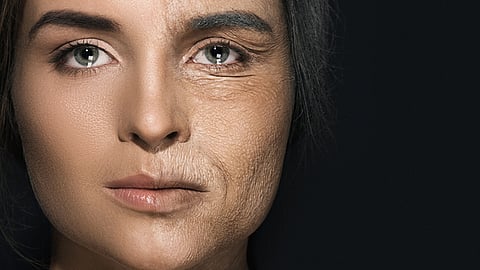Fountains of youth: The science turning back the clock on ageing
Key topics:
Gene editing like CRISPR may reverse age-related genetic damage
Stem cell and exosome therapies aim to regenerate aging tissues
Anti-ageing strategies include fasting, NAD+ boosters, and telomere repair
Sign up for your early morning brew of the BizNews Insider to keep you up to speed with the content that matters. The newsletter will land in your inbox at 5:30am weekdays. Register here.
Support South Africa’s bastion of independent journalism, offering balanced insights on investments, business, and the political economy, by joining BizNews Premium. Register here.
If you prefer WhatsApp for updates, sign up to the BizNews channel here.
By RL Drake
Youth, said George Bernard Shaw, is wasted on the young. Go to England and you find a lot of tanning salons, visit the Middle East and blonde hair is at a premium. The young want to be older and the old want to be young again. Since you can get a tan in Yorkshire, and bleach your hair in Dubai, and since you are treated with remarkable seriousness as a young person, it’s about time us ancient ones also get our wish.
With science on the march – what is old might well be young again – and soon. Here’s just a handful of the technologies currently being explored and worked on to laminate our laugh lines back into beautiful, baby-smooth faces. The following isn’t medical advice – but a quick tour of some of the latest technologies that show a lot of youthful promise in the medium-term future.
Check out my brand-new genes
CRISPR-Cas9 is a revolutionary new gene editing technology that essentially makes gene editing not only possible, but rapid and cheap. It uses an enzyme to recognise and unlock specific strands of genetic code – effectively zipping open genes so they can be edited, and then zipping them closed. Emmanuelle Charpentier and Jennifer Doudna jointly received the Nobel Prize in chemistry in 2020 for their work on the technique. It already has applications in the treatment of diseases, including hereditary diseases, research and biotechnology. Currently experiments are being conducted to apply editing to age-related diseases by modifying age-related genes. The technology is very promising in that it takes genetic modification on live subjects to the next level. You could theoretically go in for an anti-ageing treatment and come out rejuvenated – literally. But it’s not just genetics, the field of epigenetics also holds promise. Epigenetics studies how behaviour and environment affect the functioning of DNA and can change the way your body reads a DNA sequence. Epigenetics reveals or predicts biological age, and research in this area may lead to potential interventions.
I’m gut feeling young
It’s not just quantity of years but quality. The gut microbiome plays a very significant role in ageing, as well as overall health, and researchers are investigating ways to modify the microbiome so that ageing can be as healthy as possible. This is likely to affect both years in your life and the life in your years, as the gut holds the key to many byproducts of both illness and ageing.
Be my cell mate
Mesenchymal Stem Cell Therapy is being investigated for its potential to repair and regenerate cell tissues. Making cells new again. Notice the words repair and regenerate – not slowing ageing or halting ageing, but actually reversing its effects. In addition to stem cell treatments, exosome therapy can also help regeneration and counteract the effects of ageing. Exosomes are small vesicles used by cells to communicate. Research is being conducted to effectively change the message from ‘business as usual’ to ‘be young again’.
The fast life
Caloric restriction – that is, fasting – has been shown to extend lifespan in various organisms. The research on humans is not absolutely conclusive, but there might well be benefits to saying no instead of yes to that lovely alluring snack. But why deny yourself the pumpkin pie at all if there are drugs and compounds – like metformin or resveratrol – that mimic the effect of caloric restriction. In the future, you might well just take a pill, and chill – like a baby.
Acid trips
Nicotinamide adenine dinucleotide (NAD+) is a co-enzyme that drives metabolism. It plays a crucial role in mobilising and utilising energy. Boosting levels with supplements has already gained some attention for possible anti-ageing effects – but the possibilities are not yet well explored. A better understanding of the function of NAD+ itself might prove there are more effective boosters than NMN or NR.
Out with the old…
Over time, our DNA suffers wear and tear. Being on the road involves inevitable damage over time. In fact, it’s not that we age because our DNA is damaged, DNA damage is ageing. One of the ways to tell is the presence and prevalence of senescent cells – strongly associated with ageing, and age-related diseases. A new wave of next-generation drugs is showing promise in early clinical trials –effectively targeting and removing senescent cells. And with the old taken out, new, fresh cells have room.
Life length
At the end of our chromosomes are protective caps called telomeres. As we age, these shorten. Early research shows that extending these telomeres slows – and reverses – this process. Very exciting times.
So, if you’re old, hang on a while longer. Because if you stick around long enough, you might just end up hanging around for quite a while, given everything currently being worked on.

